
- Pregnancy Classes


Pregnancy and Dental Work
Is having dental work while pregnant safe.
Pregnancy and dental work questions are common for expecting moms. Preventive dental cleanings and annual exams during pregnancy are not only safe but are recommended. The rise in hormone levels during pregnancy causes the gums to swell, bleed, and trap food causing increased irritation to your gums.
Preventive dental work while pregnant is essential to avoid oral infections such as gum disease, which has been linked to preterm birth.
Toothaches in pregnancy and other dental needs
Dental work while pregnant, such as cavity fillings and crowns, should be treated to reduce the chance of infection. If dental work is done during pregnancy, the second trimester is ideal. Once you reach the third trimester , it may be very difficult to lie on your back for an extended period of time.
However, sometimes emergency dental work, such as a root canal or tooth extraction, is necessary. Elective treatments, such as teeth whitening and other cosmetic procedures, should be postponed until after the birth. It is best to avoid this dental work while pregnant and avoid exposing the developing baby to any risks, even if they are minimal.
What about the medications?
Currently, there are conflicting studies about possible adverse effects on the developing baby from medications used during dental work. Lidocaine is the most commonly used drug for dental work. Lidocaine (Category B) does cross the placenta after administration.
If dental work is needed, the amount of anesthesia administered should be as little as possible, but still enough to make you comfortable. If you are experiencing pain, request additional numbing. When you are comfortable, the amount of stress on you and the baby is reduced. Also, the more comfortable you are, the easier it is for the anesthesia to work. Dental work often requires antibiotics to prevent or treat infections. Antibiotics such as penicillin, amoxicillin, and clindamycin, which are labeled category B for safety in pregnancy, maybe prescribed after your procedure.
Are dental x-rays safe?
Routine x-rays , typically taken during annual exams, can usually be postponed until after the birth. X-rays are necessary to perform many dental procedures, especially emergencies. According to the American College of Radiology, no single diagnostic x-ray has a radiation dose significant enough to cause adverse effects in a developing embryo or fetus. According to the ADA and ACOG, having dental X-rays during your pregnancy is considered safe with appropriate shielding.
Some women may elect to avoid dental work during the first trimester knowing this is the most vulnerable time of development. However, there is no evidence suggesting harm to the baby for those electing to visit the dentist during this time frame.
Also, if non-emergency dental work is needed during the third trimester, it is usually postponed until after the birth. This is to avoid the risk of premature labor and prolonged time lying on your back.
Suggestions for addressing your pregnancy and dental work needs:
- The American Dental Association (ADA) recommends pregnant women eat a balanced diet , brush their teeth thoroughly with ADA-approved fluoride toothpaste twice a day, and floss daily.
- Have preventive exams and cleanings during your pregnancy.
- Let your dentist know you are pregnant.
- Postpone non-emergency dental work until the second trimester or after delivery, if possible.
- Elective procedures should be postponed until after the delivery.
- Maintain healthy circulation by keeping your legs uncrossed while you sit in the dentist’s chair.
- Take a pillow to help keep you and the baby more comfortable.
- Bring headphones and some favorite music.
Want to Know More?
- X-rays During Pregnancy
- Cat Scans and Pregnancy
Compiled using information from the following sources:
1. William’s Obstetrics Twenty-Second Ed. Cunningham, F. Gary, et al, Ch. 41.
2. American College of Radiologists
https://www.acr.org/
3. American Dental Association
https://www.ada.org/
4. Planning Your Pregnancy and Birth Third Ed. The American College of Obstetricians and Gynecologists, Ch. 7.
5. American College of Obstetricians and Gynecologists
https://www.acog.org/
6. American Thyroid Association
https://www.thyroid.org/
BLOG CATEGORIES
- Can I get pregnant if… ? 3
- Child Adoption 19
- Fertility 54
- Pregnancy Loss 11
- Breastfeeding 29
- Changes In Your Body 5
- Cord Blood 4
- Genetic Disorders & Birth Defects 17
- Health & Nutrition 2
- Is it Safe While Pregnant 54
- Labor and Birth 65
- Multiple Births 10
- Planning and Preparing 24
- Pregnancy Complications 68
- Pregnancy Concerns 62
- Pregnancy Health and Wellness 149
- Pregnancy Products & Tests 8
- Pregnancy Supplements & Medications 14
- The First Year 41
- Week by Week Newsletter 40
- Your Developing Baby 16
- Options for Unplanned Pregnancy 18
- Paternity Tests 2
- Pregnancy Symptoms 5
- Prenatal Testing 16
- The Bumpy Truth Blog 7
- Uncategorized 4
- Abstinence 3
- Birth Control Pills, Patches & Devices 21
- Women's Health 34
- Thank You for Your Donation
- Unplanned Pregnancy
- Getting Pregnant
- Healthy Pregnancy
- Privacy Policy
Share this post:
Similar post.

Preconception Wellness - Prepare for the Unexpected

Leg Cramps During Pregnancy

Prenatal Vitamin Limits
Track your baby’s development, subscribe to our week-by-week pregnancy newsletter.
- The Bumpy Truth Blog
- Fertility Products Resource Guide
Pregnancy Tools
- Ovulation Calendar
- Baby Names Directory
- Pregnancy Due Date Calculator
- Pregnancy Quiz
Pregnancy Journeys
- Partner With Us
- Corporate Sponsors
Appointment New Patient Appointment or Call 214-645-8300
Your Pregnancy Matters
Can I go to the dentist when I’m pregnant?
July 31, 2018
7 common questions about dental care during pregnancy
1. why is dental care important during pregnancy, 2. i’m in my second trimester of pregnancy. can i get my teeth cleaned, 3. if i need oral surgery or a procedure, what types of anesthetic are safe, 4. are dental x-rays safe during pregnancy.
It’s an old wives’ tale that going to the dentist while pregnant is risky for developing babies and moms-to-be. In fact, just the opposite is true – good dental hygiene is part of a healthy lifestyle for everyone.
5. Which antibiotics can I take to prevent or treat a tooth infection?
6. what can i take for pain control after a dental procedure, 7. what about dental care after the baby is born.
More in: Your Pregnancy Matters , pregnant, , dentist, , pregnancy

Next Article RhoGAM shortage: Managing Rh incompatibility in pregnancy
More from Your Pregnancy Matters
Rhogam shortage: managing rh incompatibility in pregnancy.
- Robyn Horsager-Boehrer, M.D.
April 2, 2024

Closing gaps in postpartum care: the IMPACT study
- Elaine Duryea, M.D.
- David Nelson, M.D.
March 22, 2024

Congenital syphilis is on the rise: What pregnant women need to know
- Emily Adhikari, M.D.
March 12, 2024

Women's Health; Your Pregnancy Matters
Breaking the silence about endometriosis
- Kimberly Kho, M.D.
February 22, 2024

Is genetic screening recommended during pregnancy if you’ve had IVF?
- Ashley Zink, M.D.
- Heather Fisher, M.S.
February 20, 2024

Mental Health; Your Pregnancy Matters
Studying the connection between anxiety and preterm birth
February 9, 2024

Why pregnant women should resist ‘vaccine fatigue’
January 9, 2024

Aging; Men's Health; Your Pregnancy Matters
How does a father’s age affect fertility and a baby’s health?
- Leen Al-Hafez, M.D.
October 13, 2023

Can genetic testing explain the cause of recurrent miscarriages?
September 19, 2023
More Articles
Appointment New Patient Appointment or 214-645-8300 or 817-882-2400
- Share via Facebook facebook
- Share via Twitter twitter
- Share via LinkedIn linkedin
- Share via Email email
- Print this page print
Can You Go to the Dentist When You're Pregnant? What to Know About Oral Health and Pregnancy
Medical review policy, latest update:, how does pregnancy affect oral health, read this next, is it safe to go to the dentist during pregnancy, what pregnancy complications can be caused by poor oral health, how to improve oral health during pregnancy.
You’ve got a lot on your mind during pregnancy, but don’t forget to add good oral hygiene to your (growing) list. Healthy teeth and gums impact your well-being and that of your baby-on-board, so keep on brushin’ and swishin’ both now and after your due date.
What to Expect When You’re Expecting , 5th edition, Heidi Murkoff. WhatToExpect.com, Sore and Bleeding Gums During Pregnancy , January 2022. WhatToExpect.com, “Pregnancy Brain” or Forgetfulness During Pregnancy , October 2020. American Dental Association, Is It Safe to Go to the Dentist During Pregnancy? , 2022. American Dental Association, Pregnancy , April 2019. American College of Obstetricians and Gynecologists, Oral Health Care During Pregnancy and Through the Lifespan , December 2019. American Academy of Pediatrics, Brushing for Two: How Your Oral Health Affects Baby , November 2019. Centers for Disease Control and Prevention, Pregnancy and Oral Health , February 2019. March of Dimes, Dental Health During Pregnancy , June 2019. Westend Dental, Dental Care During Pregnancy , 2021. National Library of Medicine, Bleeding Gums , June 2021. American Academy of Pediatrics, Pregnancy and Oral Health: Truth or Fiction ?, January 2017. American Academy of Pediatrics, Give Your Baby the Best Possible Start , June 2018. Food & Drug Administration, X-Rays, Pregnancy and You , December 2017. American Academy of Periodontology, Types of Gum Disease , 2021. University of Michigan Health, Michigan Medicine, Dental Care During Pregnancy , October 2020.
Jump to Your Week of Pregnancy
Trending on what to expect, signs of labor, pregnancy calculator, ⚠️ you can't see this cool content because you have ad block enabled., top 1,000 baby girl names in the u.s., top 1,000 baby boy names in the u.s., braxton hicks contractions and false labor.
- Getting Pregnant
- Registry Builder
- Baby Products
- Birth Clubs
- See all in Community
- Ovulation Calculator
- How To Get Pregnant
- How To Get Pregnant Fast
- Ovulation Discharge
- Implantation Bleeding
- Ovulation Symptoms
- Pregnancy Symptoms
- Am I Pregnant?
- Pregnancy Tests
- See all in Getting Pregnant
- Due Date Calculator
- Pregnancy Week by Week
- Pregnant Sex
- Weight Gain Tracker
- Signs of Labor
- Morning Sickness
- COVID Vaccine and Pregnancy
- Fetal Weight Chart
- Fetal Development
- Pregnancy Discharge
- Find Out Baby Gender
- Chinese Gender Predictor
- See all in Pregnancy
- Baby Name Generator
- Top Baby Names 2023
- Top Baby Names 2024
- How to Pick a Baby Name
- Most Popular Baby Names
- Baby Names by Letter
- Gender Neutral Names
- Unique Boy Names
- Unique Girl Names
- Top baby names by year
- See all in Baby Names
- Baby Development
- Baby Feeding Guide
- Newborn Sleep
- When Babies Roll Over
- First-Year Baby Costs Calculator
- Postpartum Health
- Baby Poop Chart
- See all in Baby
- Average Weight & Height
- Autism Signs
- Child Growth Chart
- Night Terrors
- Moving from Crib to Bed
- Toddler Feeding Guide
- Potty Training
- Bathing and Grooming
- See all in Toddler
- Height Predictor
- Potty Training: Boys
- Potty training: Girls
- How Much Sleep? (Ages 3+)
- Ready for Preschool?
- Thumb-Sucking
- Gross Motor Skills
- Napping (Ages 2 to 3)
- See all in Child
- Photos: Rashes & Skin Conditions
- Symptom Checker
- Vaccine Scheduler
- Reducing a Fever
- Acetaminophen Dosage Chart
- Constipation in Babies
- Ear Infection Symptoms
- Head Lice 101
- See all in Health
- Second Pregnancy
- Daycare Costs
- Family Finance
- Stay-At-Home Parents
- Breastfeeding Positions
- See all in Family
- Baby Sleep Training
- Preparing For Baby
- My Custom Checklist
- My Registries
- Take the Quiz
- Best Baby Products
- Best Breast Pump
- Best Convertible Car Seat
- Best Infant Car Seat
- Best Baby Bottle
- Best Baby Monitor
- Best Stroller
- Best Diapers
- Best Baby Carrier
- Best Diaper Bag
- Best Highchair
- See all in Baby Products
- Why Pregnant Belly Feels Tight
- Early Signs of Twins
- Teas During Pregnancy
- Baby Head Circumference Chart
- How Many Months Pregnant Am I
- What is a Rainbow Baby
- Braxton Hicks Contractions
- HCG Levels By Week
- When to Take a Pregnancy Test
- Am I Pregnant
- Why is Poop Green
- Can Pregnant Women Eat Shrimp
- Insemination
- UTI During Pregnancy
- Vitamin D Drops
- Best Baby Forumla
- Postpartum Depression
- Low Progesterone During Pregnancy
- Baby Shower
- Baby Shower Games
Is it safe to go to the dentist while pregnant?

Yes, it's safe (and smart) to visit the dentist during pregnancy. Oral health care – including teeth cleaning, X-rays, pain medication, and local anesthesia – is safe throughout pregnancy.
In fact, it's especially important to have regular dental checkups, cleanings, and any necessary treatments during pregnancy. Around half of women develop pregnancy gingivitis , a mild form of gum disease that usually disappears after childbirth. You can blame your hormones; they make your gums more easily irritated by plaque and they can get red, tender, and sore (and may bleed). If gingivitis isn't treated, it may lead to more serious gum (periodontal) disease and even tooth loss.
This has implications for your baby, too. In severe cases, if a pregnant woman has excessive bacterial growth in her mouth (like periodontitis, a serious gum infection), research has found there's a possibility it could induce preterm labor . There's also the potential that bacteria could pass to your newborn, which can set them up for oral health issues like cavities early in life, too.
During pregnancy, brush your teeth with fluoridated toothpaste twice a day (morning and night) and floss once a day. If you're vomiting because of morning sickness , you can freshen your mouth by swishing and spitting with mouthwash , plain water, or a mixture of a cup of water and one teaspoon of baking soda. Then brush your teeth about 30 minutes later. This will help get rid of stomach acids that can eat away at your enamel.
You can also visit the dentist's office to have a hygienist remove hardened deposits (tartar) on your teeth that are too tough to remove during routine cleaning.
When you schedule your appointment, tell the office that you're pregnant and your due date. This will help the dental team provide the best care for you. If your last dental visit was more than six months ago or if you have any oral health problems or concerns, schedule an appointment as soon as possible.
If you get uncomfortable in the dental chair, your dental team can make some adjustments to help you feel better and prevent you from getting lightheaded. For example, they can:
- Keep your feet slightly head higher than your head
- Place you in a semi-reclining position, when possible, and allow frequent position changes
- Place a small pillow under your hip, or have you turn slightly as needed to avoid dizziness or nausea resulting from hypotension (low blood pressure)
It's also safe to have dental X-rays during pregnancy if you're due for them. Your dentist will cover you with a protective lead apron to minimize exposure to your uterus, as well as a protective collar for your thyroid.
Don't put off procedures like cavity fillings, root canals, and crowns, since they can prevent infection. You don't have to worry about the safety of the numbing medications your dentist uses, either. A study published in the Journal of the American Dental Association found that lidocaine shots are safe during pregnancy and cause no difference in the rate of miscarriages, birth defects, prematurity, or low birth weight.
However, cosmetic procedures like whitening your teeth – either at the dentist or using over-the-counter products at home – are best put off until after your baby arrives. Exposure to the chemicals used in teeth whitening procedures aren't likely to harm your baby, but they haven't been well-studied, so it's best to play it safe.
Was this article helpful?
Measuring fundal height during pregnancy

Linea nigra

Pregnancy acne: Causes and treatment

Iron during pregnancy

BabyCenter's editorial team is committed to providing the most helpful and trustworthy pregnancy and parenting information in the world. When creating and updating content, we rely on credible sources: respected health organizations, professional groups of doctors and other experts, and published studies in peer-reviewed journals. We believe you should always know the source of the information you're seeing. Learn more about our editorial and medical review policies .
American College of Obstetricians and Gynecologists. 2013. Oral Health Care During Pregnancy and Through the Lifespan. https://www.acog.org/clinical/clinical-guidance/committee-opinion/articles/2013/08/oral-health-care-during-pregnancy-and-through-the-lifespan Opens a new window [Accessed November 2021]
National Maternal and Child Oral Health Resource Center. Undated. Oral Health Care During Pregnancy: A National Consensus Statement. https://www.mchoralhealth.org/materials/consensus_statement.php Opens a new window [Accessed November 2021]
American Dental Association. 2021. Pregnancy. https://www.ada.org/en/member-center/oral-health-topics/pregnancy Opens a new window [Accessed November 2021]
American Dental Association. Undated. Pregnant? 9 Questions You May Have About Your Dental Health. https://www.mouthhealthy.org/en/pregnancy-slideshow Opens a new window [Accessed November 2021]
American Academy of Pediatrics. 2019. Brushing for Two: How Your Oral Health Affects Baby. https://www.healthychildren.org/English/ages-stages/prenatal/Pages/Brushing-for-Two-How-Your-Oral-Health-Effects-Baby.aspx Opens a new window [Accessed November 2021]
Journal of the American Dental Association. 2015. Pregnancy outcome after in utero exposure to local anesthetics as part of dental treatment. https://jada.ada.org/article/S0002-8177(15)00433-X/fulltext [Accessed November 2021]

Where to go next

Dental Care is Safe and Important During Pregnancy
- Source Text
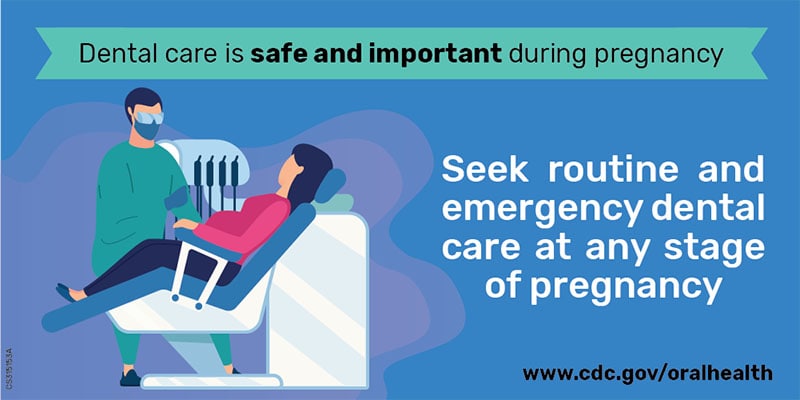
Image: Dental care is safe and important during pregnancy. Pregnant woman at dental appointment. Seek routine and emergency dental care at any stage of pregnancy.
Available for Download [PDF – 461 KB]
- Oral Health is Essential to General Health
Exit Notification / Disclaimer Policy
- The Centers for Disease Control and Prevention (CDC) cannot attest to the accuracy of a non-federal website.
- Linking to a non-federal website does not constitute an endorsement by CDC or any of its employees of the sponsors or the information and products presented on the website.
- You will be subject to the destination website's privacy policy when you follow the link.
- CDC is not responsible for Section 508 compliance (accessibility) on other federal or private website.
- Find-a-Dentist
Pregnancy and your dental health
When you’re expecting a baby, there’s SO much to do. But busy as you are, don’t let good dental habits drop off your list! Taking good care of your teeth and gums is even more important right now, since pregnancy causes changes that can elevate your risks for cavities and gum disease.
Your baby’s teeth are developing during pregnancy, too — so this is a great time to learn how you can support their future dental health.
Is it safe to visit the dentist while I’m pregnant?
Yes. In fact, experts at the American Dental Association, the American Congress of Obstetricians and Gynecologists and the American Academy of Pediatrics all encourage you to see your dentist while you’re expecting.
It’s a good idea to take care of dental cleanings and any needed procedures (such as cavity fillings) before your baby arrives. Seeing your dentist now also ensures you get the care you need to deal with pregnancy-related symptoms you might be experiencing.
When should I tell my dentist I’m pregnant?
Right away – even if you aren’t 100% sure yet. Let your dental team know how far along you are and share your expected due date. This can help them plan appropriate care and look carefully for signs of pregnancy-related issues in your mouth.
During your visit, let your dentist know about any medications you are taking. If your pregnancy has been classified as high-risk, your dentist or doctor might recommend that certain dental treatments be postponed.
How will pregnancy affect my mouth?
Many people have no dental discomfort during pregnancy. However, the demands on your body while you’re carrying a baby can change your risks for certain conditions that affect your teeth and gums.
Some people develop a condition known as pregnancy gingivitis , which causes swollen, tender gums that may bleed a little when you brush or floss. Higher hormonal levels during pregnancy affect the way your gums react to plaque , the sticky film that builds up on teeth, especially between dental cleanings.
Since gingivitis can lead to more serious forms of gum disease, your dentist will recommend ways to treat any symptoms you are having. You may need more frequent cleanings during pregnancy, or an anti-microbial mouth rinse.
Cavity risks can rise during pregnancy, too. If you are eating more carbohydrates than usual, this offers extra fuel for the bacteria that cause tooth decay. Morning sickness can increase the level of acids in your mouth, causing damage to the shiny, protective coating on your teeth (enamel). Your dentist may recommend rinsing your mouth with a teaspoon of baking soda mixed with water to cleanse away excess acids.
How can I protect my teeth and gums while I’m pregnant?
Now more than ever, it’s important to brush twice daily for at least two minutes each time. (Morning and night is generally best.) You should also floss once a day to cleanse away particles of food between teeth and drink plenty of plain water in between meals.
You might find it a little more difficult to maintain your regular dental routine while you’re expecting, especially if you feel tired or busy. You may have a more sensitive gag reflex or tender gums that make brushing a little more uncomfortable.
If you need extra motivation, keep in mind that your baby’s health depends on you. Poor health habits during pregnancy have been linked with premature delivery, preeclampsia , gestational diabetes and other concerns. Eating a balanced diet, staying hydrated and taking extra-good care of your teeth and mouth are good for you and your child.
What are pregnancy tumors?
Pregnancy tumors are overgrowths of tissue that can develop on the gums, usually during the second trimester. These growths are not cancer, just a form of swelling that typically shows up between teeth. They may be related to an excess buildup of plaque in between teeth.
Pregnancy tumors often bleed easily and have a red, raw-looking, raspberry-like appearance. They usually disappear after your baby is born, but if you are concerned, talk with your dentist about ways to address them.
Should I talk to my dentist about the medications I’m taking?
Your dentist should have the full list of prescriptions and over-the-counter drugs you are taking, including vitamins and dietary supplements. Since this may have changed during pregnancy, be sure to update your dentist when you visit.
Keeping your dentist informed also helps in choosing medications you might need before or after dental treatment, such as antibiotics or pain relievers. Both your doctor and dentist want to choose medications that are safe for you and your baby.
What if I need local anesthetics during pregnancy?
If you’re pregnant and need a filling, a root canal or a tooth pulled, one thing you don’t have to worry about is the safety of the numbing medications your dentist may use. They are safe for both you and your baby.
One study followed a group of pregnant parents who were given anesthetics (such as lidocaine) during dental procedures and a group that received none. Researchers found no difference in the rate of miscarriages, birth defects, premature births or birth weight between the two groups.
Is it safe to have dental X-rays while I’m expecting?
Yes, according to the American College of Obstetricians and Gynecologists, dental X-rays are safe during pregnancy. Dental X-rays emit very low doses of radiation, and your dental team will take steps to minimize your exposure by properly positioning you for imaging and focusing the beam on the area of interest.
Dental X-rays also do not need to be delayed if you are trying to become pregnant or are breastfeeding. According to the American Association of Physicists in Medicine , you are not considered at risk of passing along radiation damage to future offspring by participating in medical imaging.
What do I need to know about my baby’s dental health?
Your baby’s teeth will begin to form between the third and sixth month of your pregnancy. This is one reason doctors and dentists recommend a healthy diet rich in vitamins A, C, D and calcium. Eating plenty of vegetables, fruits and dairy products will nourish your baby’s developing teeth.
When your newborn arrives, all 20 primary (baby) teeth will already be in place underneath their gums. To set up a healthy routine, wipe down their gums with a damp cloth or a small piece of gauze after feeding. Here are more tips for creating mouth-healthy habits that will benefit your child for life.
Effects of Pregnancy on Oral Health

In this article
Pregnancy can be a vulnerable time for the oral health of both mother and baby. It’s vital to practice excellent dental hygiene during pregnancy.
Many women experience dental problems while they’re pregnant. A mother’s oral health also is a strong predictor of how her child’s oral health will be.
Being vigilant about your dental care can keep you and your baby healthy.
How Does Pregnancy Impact Oral Health?
Your body undergoes many changes during pregnancy. These changes can lead to dental problems if you aren’t vigilant about oral hygiene.
Factors that can impact oral health during pregnancy include:
- Hormonal fluctuations
- Changes in eating habits
- Morning sickness
- Neglect of oral hygiene
Many women don’t realize the necessity of good oral health during pregnancy and tend to neglect dentist visits. Studies show that more than half of women did not see the dentist during pregnancy. 1
Other women may experience increased fatigue or tenderness in the gums and may avoid cleaning their teeth as a result.
However, it’s essential to continue practicing diligent oral hygiene and to visit the dentist during pregnancy. It will help manage any dental conditions that might arise and ensure good dental health for your child.

Common Dental Conditions in Pregnancy
Pregnant women are at a higher risk of developing certain dental conditions. Hormonal, habitual, and physical changes can all affect your oral health.
The most common dental conditions that occur during pregnancy include:
Gingivitis is characterized as the inflammation of the gums. It’s a reversible early stage of periodontal disease. Your dentist or dental hygienist can treat it with a professional teeth cleaning.
Between 60 and 75% of pregnant women develop gingivitis. 2 The hormone changes associated with pregnancy can increase inflammation in the body. You might notice your gums becoming red, swollen, and tender while pregnant.

Left untreated, gingivitis will advance into the later stages of periodontal disease, which can result in permanent bone loss. It can also lead to preterm birth or low birth weight. 3
Cavities form due to a buildup of plaque , the sticky film of bacteria that forms on teeth. It’s common for pregnant women to develop cavities from frequent snacking due to cravings or increased appetite.
However, untreated cavities can have a negative impact on your child’s dental health. If you have untreated cavities before pregnancy or develop them during pregnancy, the decay-causing bacteria can transfer to your baby after birth.

Transmission can occur through direct contact, such as sharing utensils or kissing your baby on the lips. Research shows that children are three times more likely to develop cavities if their mothers have high levels of untreated tooth decay. 4
To prevent the spread of cavities from mother to baby, your dentist will recommend restoring them as soon as possible. Basic dental procedures, such as fillings and crowns, are safe during pregnancy.
Loose Teeth
Some women experience loose teeth during pregnancy, which is usually nothing to worry about. Estrogen and progesterone can loosen the bones and ligaments that keep your teeth positioned correctly.
After pregnancy, your teeth should not feel loose anymore. However, if a tooth falls out while pregnant, it is typically due to an underlying untreated dental condition, such as extreme decay or periodontal disease.
Dental Erosion
Around 70% of women experience nausea and vomiting during pregnancy, usually in the first trimester. 5 There is nothing to worry about as long as you practice good oral hygiene.
However, prolonged vomiting can expose your teeth to high amounts of stomach acid. Stomach acid can wear away at your tooth enamel, causing dental erosion .
It’s crucial to keep your teeth clean and healthy if you experience a lot of vomiting and morning sickness during pregnancy.
Keeping Your Oral Health Intact During Pregnancy
There are several ways to ensure good oral health during pregnancy, including:
Regular Teeth Cleanings, X-Rays, and Dental Exams
Teeth cleanings, x-rays, and dental exams are safe during pregnancy.
You should still visit your dentist every six months to receive preventive care. Depending on your situation, a dentist may even recommend more visits while you are pregnant.
Dentists recommend scheduling appointments before the third trimester if you need restorative work done.
For invasive procedures that involve sedatives, such as dental implants, it may be best to wait until after you give birth. Teeth whitening , clear aligners , and cosmetic treatments should also be scheduled after your baby arrives.
Food Choices and Nutrition
Abnormal and unhealthy food cravings are normal during pregnancy.
Even so, eating enough healthy foods throughout pregnancy is vital to keep your teeth healthy and help your baby’s teeth form properly. This includes a mixture of fruits, vegetables, proteins, and unrefined grains.
According to the American Dental Association (ADA), your baby’s teeth begin developing under the gums between the 3rd and 6th months of pregnancy. Eating a nutritious and balanced diet can help them form correctly.
Practicing Good Oral Hygiene at Home
The best thing you can do to keep your teeth healthy during pregnancy is to care for your teeth every day. You should: 5
- Brush your teeth twice daily with fluoride toothpaste
- Floss at least once daily
- Rinse your mouth with baking soda and water after vomiting
- Avoid food and drinks high in sugar
- Drink fluoridated water
Listen In Q&A Format
Newmouth podcast.

Keeping Your Baby’s Oral Health Intact After Pregnancy
It is equally important to keep your baby’s oral condition healthy. Understanding how early experiences impact your child’s dental health will help you ensure their positive development.
Preventing Baby Bottle Tooth Decay
A baby’s first tooth erupts no later than 1 year of age.
Excessive bottle feeding or allowing a baby to drink from a bottle in bed can result in tooth decay. If the substance in the bottle is anything but water, the front teeth will bathe in it, ultimately causing cavities.
To help prevent tooth decay, dentists recommend utilizing these tips:
- Visit a pediatric dentist regularly — Your child will need routine teeth cleanings and exams after their first tooth erupts
- Check for decay — Routinely check newly erupted teeth for signs of decay, such as tooth sensitivity and light brown spots on the enamel
- Use fluoride — Give your baby fluoridated water to drink, and brush their teeth with fluoride toothpaste
- Clean their gums — Wipe your baby’s gums after breastfeeding or bottle-feeding
- Practice good bedtime habits — Never send your baby to bed with a bottle
- Cut back on sugary drinks — Beverages that are high in sugar, like fruit juice, can promote tooth decay
Breastfeeding and Dental Health
Breast milk contains sugar, which can contribute to tooth decay. Always wipe your baby’s gums with a soft washcloth after breastfeeding. Cleaning the gums helps reduce the chance of cavity formation once primary teeth grow in.
Breastfeeding during the first year of life has a few oral health benefits, including:
- Reduces the risk of baby bottle tooth decay
- May promote the development of a better bite, reducing the need for orthodontic treatment later in life
Pregnancy can lead to dental problems for both mother and baby. Good oral hygiene can help prevent and manage common issues such as gingivitis, cavities, and dental erosion.
You should continue to see your dentist regularly during pregnancy. It’s safe to get routine dental cleanings and procedures while pregnant.
Excellent oral hygiene practices can ensure positive dental health for your child. Untreated gum disease or cavities can increase your baby’s chances of having tooth decay later in life.
Share this article
Related pages.

Xylitol's Effects on Your Oral Health
Medically Reviewed by Erica Anand

Oral Hygiene and COVID-19: Importance of Good Oral Health
by Alyssa Hill

How Diet Influences Your Oral and Dental Health
Medically Reviewed by Lara Coseo

Why is Oral Health Important?
Medically Reviewed by Khushbu Gopalakrishnan

Oil Pulling: Benefits, How to Do It, Side Effects, and More
Medically Reviewed by Nandita Lilly

15 Common Types of Oral Conditions & Dental Diseases
- “ Oral Health Care During Pregnancy and Through the Lifespan .” The American College of Obstetricians and Gynecologists, 2013.
- Hartnett, E., et al. “ Oral Health in Pregnancy. ” Journal of Obstetric, Gynecologic & Neonatal Nursing, Elsevier Inc., 2016.
- Kruse, A., et al. “ Association between high risk for preterm birth and changes in gingiva parameters during pregnancy—a prospective cohort study. ” Clinical Oral Investigations, SpringerLink, 2017.
- “ Pregnancy and Oral Health .” Centers for Disease Control and Prevention, U.S. Department of Health and Human Services, 2022.
- Lee, N., et al. “ Nausea and Vomiting of Pregnancy .” Gastroenterology Clinics of North America, National Library of Medicine, 2013.
- “ Tips for Good Oral Health During Pregnancy .” Maryland Department of Health, Maryland.gov, 2023.
- Skouteris, C. “Dental Management of the Pregnant Patient .” Wiley-Blackwell, 2018.


- When to Visit the Dentist During Pregnancy
WHEN TO VISIT THE DENTIST DURING PREGNANCY
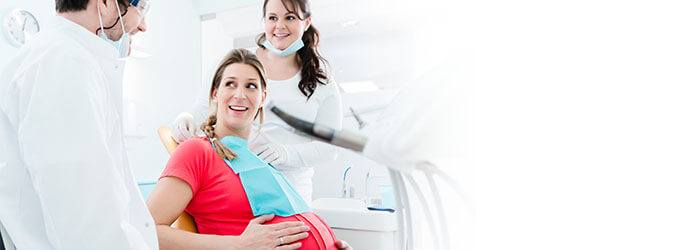
Tell the Dentist As Soon As Possible
Postpone dental care during your first trimester, visit the dentist during your third trimester .
Following a consistent oral health care routine is especially important for pregnant women for several reasons.
Pregnancy changes the hormones in the body that put pregnant women at increased risk for periodontal disease, which is the most severe form of gum disease. As soon as you believe you’re pregnant, tell your dentist, because it may not be safe to have X-rays during pregnancy. You should also let your dentist know if you are trying to get pregnant; knowing this can help in planning x-rays or other treatments. Be sure to tell your dentist what medicines you’re taking and if your physician has given you any specific medical advice, as it may affect the treatment he or she recommends. When possible, visit your dentist before pregnancy so you can take are of any pre-existing dental problems before you conceive.
Popular for Daily Brushing
The first trimester of your pregnancy (the first 13 weeks) is the time in which most of the baby's major organs develop. If you go to the dentist during your first trimester, tell your dentist that you're pregnant and have only a checkup and routine cleaning. If possible, postpone any major dental work until after the first trimester. However, if you have a dental emergency, don't wait! Infections in the mouth can be harmful to you and your baby. See your dentist immediately, and make sure that all dental professionals who examine you are aware you're pregnant.
If you have postponed seeing your dentist during your first or second trimester, the third trimester is the time to have a dental checkup to ensure that your mouth is healthy. By visiting your dentist at this time, he or she will be able to advise you on what you can do to prevent oral heath problems after your baby is born.
069055125946|069055125939|069055842010
Related Articles

Dysgeusia In Pregnant Women

Learn About Pregnancy and Oral Health
SAVE UP TO $40 ON SUPERIOR ORAL HEALTH
By registering, you confirm you want to receive emails from Oral-B and Crest and other trusted P&G brands and programs. You understand that registering with Oral-B and Crest may indicate or imply information about your past, present, or future health conditions, including Product Interests, Individual Health Conditions, Treatments and Diseases. You consent to our collection of that information. We will use your Consumer Health Data to provide you products and services, deliver relevant advertising, manage your accounts and otherwise in accordance with the Processing Purposes in the P&G Consumer Health Data Privacy Policy . Your Consumer Health Data will be shared with our processors who assist us in providing goods and services to you and for other legal and business operational purposes as outlined in the Disclosures section of the P&G Consumer Health Data Privacy Policy . Visit our Consumer Health Data Preference Center at any time to withdraw your consent. You have read and you agree to the P&G Terms and Conditions , P&G Consumer Health Data Privacy Policy and P&G Privacy Policy
Thanks for Subscribing! Thank you for joining our mailing list. We can't wait to share upcoming news and special offers for Oral-B.
Please enter a valid email address
Email Already Subscribed
Now Accepting new patients! Start here

- Schedule Online
- Our Doctors
- Insurance Providers
- Medi-Cal Dental
- Dental Blog
- Special Offers
Dental Care During Pregnancy: A Guide for Expectant Moms

How pregnancy affects your dental health and what to do about it
Pregnancy is overwhelming enough.
Your body changes so quickly and in so many ways to accommodate the growing baby. The last thing you need is unexpected dental issues coming up and causing unnecessary worry and stress.
If you don’t know what to expect, the way pregnancy can affect your dental health can be scary. Worse yet, the simple act of going to the dentist can be daunting.
Which treatments are okay for you and your baby? How often should you go to the dentist while pregnant? Are dentist visits during pregnancy even safe?
If you don’t know the answers to these questions, don’t worry. We’ve got you covered. We’ll be tackling common problems like these and much more in today’s article.
At Dental Express, removing decay-causing plaque isn’t our only specialty. We’re also experts at removing the uncertainty and confusion surrounding dental care as a whole, revealing best practices and healthy habits to keep your teeth shining through all stages of life.
Pregnancy is one of the most critical stages of life in which many rapid changes to your dental health can occur.
To help you on your journey, we created this dental care guide for pregnant moms to answer common questions, provide solutions, and remove the stress from taking care of teeth for two.
Knowing what could be coming down the road will help you navigate this wonderful and challenging part of your life with confidence, keeping you and your baby’s teeth safe and healthy.
How Does Pregnancy Affect Your Dental Health (And Your Baby’s)?
You may have heard the old wives’ tale before: Gain a child, lose a tooth.
It’s not exactly the most promising statement.
Thankfully, although it does scare a lot of potential moms, this saying isn’t accurate (at least not in this day and age).
However, there is a nugget of truth to it.
Studies have shown a strong connection between pregnancy and dental health conditions. So, while losing a tooth is extreme, there are potential issues to look out for that become more likely during pregnancy.
Hormonal Changes
During your pregnancy, you may notice your gums become red, sore, and more sensitive to brushing and flossing than usual, even to the point where they bleed. These symptoms are totally normal.
The surge in hormone activity as a result of pregnancy can make your gums more sensitive to plaque, leading to a mild form of gum disease known as “pregnancy gingivitis.”
Happening most often between the second and eighth month of pregnancy, this type of gingivitis occurs in around half of all women. Talk to your dentist as soon as you notice the symptoms of pregnancy gingivitis. Left untreated, a more severe form of gingivitis, periodontitis, could result in potential bone loss.
You can keep pregnancy gingivitis at bay with a strong at-home dental care routine and regular visits to your San Diego dentist during pregnancy. In the majority of cases, gums go back to normal after the baby is born. If the problem continues after childbirth, talk with your dentist about the best course of action.
Increased Risk of Cavities & Erosion
Women are usually at greater risk of developing cavities during pregnancy due to the diet changes and more frequent snacking that often comes with cravings.
If morning sickness becomes a common issue, then the high acidity levels from vomiting can also increase your risk of tooth decay, also known as erosion. We’ll talk more about how to keep your teeth safe from erosion below.
Taking care of your teeth at home becomes all the more important when you’re pregnant. Brush twice and floss once daily, and stay cautious.
If you start to feel any pain or discomfort, schedule a checkup with your local dentist in San Diego. Your teeth are more susceptible to oral health conditions during pregnancy, so it’s best to catch these issues sooner rather than later.
Loose Teeth & Shifting May Occur
Some of your teeth may feel loose or even shift during pregnancy, which can turn chewing into a chore. If this happens, try not to freak out, it’s completely normal! Unless you have a severe pre-existing issue, you don’t have to worry about your teeth falling out.
Loose teeth are due to the higher estrogen and progesterone levels during pregnancy, which causes the tissues that hold your teeth in place to relax.
Like pregnancy gingivitis, this condition typically goes away after childbirth, but keep your dentist up to speed if the issue persists.
Growths on Your Gums May Appear
You can thank all the bonus pregnancy hormones again for this one. Heightened hormone levels can lead to small, round growths appearing in your mouth, usually on your gums.
Although they’re not cancerous or infectious, they’re referred to as “pregnancy tumors.” They can swell up and even bleed, but they’re harmless and most often go away after pregnancy.
Your dentist may elect to surgically remove them if they become too much of an issue, so make sure they’re aware of your situation as it develops.
How Does Pregnancy Affect Your Baby’s Dental Health?
What you eat and how you take care of your teeth have a profound effect on your baby’s dental health during pregnancy.
Between the third and sixth months, the hard tissue that makes up your baby’s teeth will start to form. To help your baby’s teeth grow strong and healthy, be meticulous with your dental care, and make sure you’re getting the proper nutrients in your diet.
The right amounts of vitamin A, C, D, phosphorus, calcium, and protein all work together to help your baby’s teeth form properly.
When you’re pregnant, you’re brushing and flossing for two. If your dental health is poor, you could pass harmful bacteria to your newborn, leading to complications like cavities during infancy. But, if you take good care of your teeth and make regular visits to your San Diego dentist , you’ll set your baby up with a healthy little set of chompers.
When we share these potential issues with you, we’re not trying to scare you. We’re also not guaranteeing that you will experience the same problems.
We’re sharing this information with you because, at Dental Express, we value transparency. We built this guide to inform you of what to look out for, so you can get the proper attention and care you need during your pregnancy.
Common Questions About Dental Care During Pregnancy
Can i go to the dentist while pregnant.
Absolutely. Dentist visits during pregnancy are strongly encouraged not just for your dental health , but the baby’s too.
Make the trip as early as possible to give your dentist the chance to build a dental care plan for the rest of your pregnancy. They may also suggest more frequent checkups or cleanings to be proactive about the increased risk of oral health issues.
Can I get my teeth cleaned during pregnancy? Which treatments are safe?
Don’t stress about routine cleanings, x-rays, local anesthetics, or treatments like fillings, crowns, root canals, and extractions during your pregnancy. According to the ADA , they’re all completely safe.
If you need emergency treatment, putting it off until after the baby is born will do more harm than good. Talk to your dentist about the safest way to move forward for you and your baby.
Dental work is crucial during pregnancy to help prevent further tooth decay and protect your baby’s health. The second trimester is considered the safest time to get dental work done, and your dentist may need clearance from your obstetrician before starting any treatments.
How often should you go to the dentist while pregnant?
This will vary from person to person.
It’s essential to visit your San Diego dentist as soon as you know you’re pregnant. Based on your dental health at the time of your visit, they’ll create a treatment schedule for your pregnancy.
If you have pre-existing dental issues, they may have you come in more often for checkups and cleanings.
What should I do about my morning sickness?
If you struggle with morning sickness, don’t brush your teeth right after getting sick. Brushing your teeth after vomiting makes them even more vulnerable to stomach acids.
Instead, dilute a teaspoon of baking soda into a cup of water and rinse your mouth out like you would with mouthwash. This solution will neutralize the stomach acids in your mouth and protect your teeth from erosion.
I can’t brush my teeth without gagging. What do I do?
When just looking at your toothbrush makes you gag, it can be hard to stick to your dental care routine during your pregnancy. Our advice here is to try everything and be patient.
If you need to take a break every few seconds, do it. Listen to your body and do your best to work through it. Try a toothbrush with a smaller head. Switch to a new flavor of toothpaste – try them all if you have to.
Do everything you can to stick to your dental health regimen. When your dental health improves, your baby’s does too.
Dental Care During Pregnancy: Tips and Solutions
Maintaining your dental health during pregnancy can seem like a toothache. In reality, taking care of teeth for two isn’t all that different than the recommended everyday dental care routine.
Here’s a Dental Express approved list of tips for dental care during pregnancy:
- Brush twice and floss once daily – Nothing new here, but adherence is doubly important when you’ve got two mouths to take care of. Ensure your toothpaste contains fluoride, and look for the ADA seal of approval on all your dental care products. At the end of the day, exhaustion can set in, and it can be tempting to skip your nightly brushing and flossing. Don’t do it! Remember, a baby’s dental health depends on yours. If you’re too worn out, have your partner or a family member do it for you. That’s what unconditional love is all about.
- See your San Diego dentist regularly – To keep the increased risk of oral health conditions under control, dentist visits during pregnancy are a must. Let your dentist know if you’re trying to get pregnant, and as soon as you know you have a baby on the way. Setting up regular checkups with your dentist sets you and baby up for dental success.
- Don’t just visit your dentist. Talk to your dentist – Not every dental health issue is visibly noticeable. Your dentist can’t treat what he doesn’t know you have. If you feel pain or discomfort when chewing, or if you notice your gums are tender, let your dentist know immediately. The sooner you catch these issues, the sooner you can get them under control, so they don’t worsen and cause damage. Oral health can decline fast during pregnancy. Stay vigilant, and stay in communication with your dentist.
- Snack in moderation (whenever possible) – Cravings are a force to be reckoned with, and there will be times when resisting them just isn’t possible. But do your best to control your snacking as often as you can. The more contact your teeth have with sugars, the more susceptible they’ll be to decay. So when you do snack, make healthy choices whenever possible.
- Nutrition tips – Balance is key here. Fruits, veggies, dairy products (low fat or fat-free), whole-grain products, and lean proteins are all part of a baby-friendly diet. Avoid juices, sodas, and foods high in sugar whenever you can. If it helps, you can replace juice with milk for the extra calcium. Also, folic acid is crucial for reducing the risk of congenital disabilities and supporting the development of your baby’s teeth. You can get folate from dietary supplements and foods like leafy green vegetables, legumes, oranges, strawberries, bananas, folate-fortified grain products like bread, cereals, or pasta, and more.
- Don’t wait! – Unfortunately, it’s common for women to put off getting the dental care they need during pregnancy. Going to the dentist while pregnant often feels unsafe, so they put it off as long as possible, sometimes until after childbirth. We can’t overstate the significance of seeing your San Diego dentist throughout your pregnancy. You’ll have a lot less time for dentist visits once your baby is born. So don’t wait! Make an appointment as soon as possible.
Staying on top of your dental care during pregnancy keeps your teeth healthy and safe from potential issues, saving you time, money, and stress. But most importantly, it gives your newborn the gift of a bright dental future.

Healthy Smiles for You & Your Newborn
Pregnancy can be insanely stressful one minute and incredibly rewarding the next. With so many things to worry about and keep track of, calling it overwhelming is an understatement.
At Dental Express in San Diego, dental care during pregnancy is nothing to stress about. From when you first share your exciting news with us to when your little miracle is born, you and your baby’s dental health are our top priority.
For safe, reliable, and quality dental care during pregnancy, make an appointment at any one of our San Diego locations today. We’d be honored to be a part of your journey.
Keep Reading
Need-to-Know Dental Care Tips as You Age
Learn What Foods and Drinks Can Damage Your Teeth
Tips for Keeping Healthy Teeth at Home
Why Are My Gums Bleeding All of a Sudden?
Request an Appointment
This appointment is for, date of birth.
Select up to 3 appointment dates in order of preference
Reason for Your Visit
Exam & Cleaning
Notes For the Doctor
Join the dental express family.
Upload Your Resume
Privacy Overview

- Getting pregnant
- Preschooler
- Life as a parent
- Baby essentials
- Find your birth club
- Free antenatal classes
- Meet local parents & parents-to-be
- See all in Community
- Ovulation calculator
- Am I pregnant quiz
- How to get pregnant fast
- Best sex positions
- Signs of pregnancy
- How many days after your period can you get pregnant?
- How age affects fertility
- Very early signs of pregnancy
- What fertile cervical mucus looks like
- Think you're pregnant but the test is negative?
- Faint line on pregnancy test
- See all in Getting pregnant
- Pregnancy week by week
- How big is my baby?
- Due date calculator
- Baby movements week by week
- Symptoms you should never ignore
- Hospital bag checklist
- Signs of labour
- Your baby's position in the womb
- Baby gender predictor
- Vaginal spotting
- Fetal development chart
- See all in Pregnancy
- Baby names finder
- Baby name inspiration
- Popular baby names 2022
- Numerology calculator
- Gender-neutral names
- Old-fashioned names
- See all in Baby names
- Your baby week by week
- Baby milestones by month
- Baby rash types
- Baby poop chart
- Ways to soothe a crying baby
- Safe co-sleeping
- Teething signs
- Growth spurts
- See all in Baby
- Your toddler month by month
- Toddler development milestones
- Dealing with tantrums
- Toddler meals
- Food & fussy eating
- When to start potty training
- Moving from a cot to a bed
- Help your child sleep through
- Games & activities
- Vomiting: what's normal?
- See all in Toddler
- Your child month by month
- Food ideas & nutrition
- How kids learn to share
- Coping with aggression
- Bedtime battles
- Anxiety in children
- Dealing with public tantrums
- Great play ideas
- Is your child ready for school?Top tips for starting school
- See all in Preschooler
- Postnatal symptoms to watch out for
- Stitches after birth
- Postpartum blood clots
- Baby showers
- Sex secrets for parents
- See all in Life as a parent
- Best baby products
- Best formula and bottles for a windy baby
- Best car seats if you need three to fit
- Best nappies
- Best Moses baskets
- Best baby registries
- Best baby sleeping bags
- Best baby humidifier
- Best baby monitors
- Best baby bath seat
- Best baby food
- See all in Baby essentials
- Back pain in pregnancy
- Pelvic girdle pain
- Perineal massage
- Signs you're having a boy
- Signs you're having a girl
- Can you take fish oil while pregnant?
- 18 weeks pregnant bump
- Can you eat salami when pregnant?
- Edwards' syndrome
- Missed miscarriage
- Should I harvest my colostrum?
- Rhesus positive vs. Rhesus negative
- What do contractions feel like?
- Hunger in early pregnancy
- First poop after birth
- When do babies sit up?
- When can babies have salt?
- MMR vaccine rash
- Vaping while breastfeeding
- How to transition from formula to milk
- When do babies start grabbing things?
- Sperm allergy: can sperm cause itching?
- How long after taking folic acid can I get pregnant?
Is it safe to visit the dentist during pregnancy?

Yes, it is safe to visit the dentist during pregnancy, but there are certain treatments you may have to postpone until after your baby is born. Find out why it’s important to have good oral health during pregnancy.
Should I visit the dentist during pregnancy?
Pregnancy is an important time to take good care of your oral health, as pregnancy can increase your risk of gum disease (gingivitis). During pregnancy, your body produces more of the hormones oestrogen and progesterone. These hormones boost the blood supply to your mouth, making your gums more sensitive to bacteria and vulnerable to plaque (NHS 2022a, NHS Inform 2023) . If plaque builds up, it can lead to inflamed and bleeding gums . Not only can this be uncomfortable, but left untreated, it can lead to more serious gum disease (periodontitis) (BSP nda) . Oral health experts believe periodontitis may be linked to premature labour , babies born with a low birth weight and pre-eclampsia , so it’s essential to take extra care of your teeth while you’re pregnant (BSP ndb) .
Will I get free dental treatment during pregnancy?
During pregnancy, you are entitled to free NHS dental treatment, as long as you are pregnant when you start your treatment. You’re also entitled to free treatment for 12 months after your baby is born (NHS 2022b) . To get this free care, you will need to apply for your maternity exemption certificate , so ask your GP or midwife (NHS 2022b) . If you’re not already registered with an NHS dentist you may find it difficult to find one, as not all dentists are taking on new NHS patients. Bear in mind that you may have to contact several dentists before finding one that you can register with, or even pay for private appointments (NHS 2023) .
- In England Opens a new window
- In Wales Opens a new window
- In Scotland Opens a new window
- In Northern Ireland Opens a new window
How can I ensure my teeth and gums are healthy?
As well as trips to the dentist, there are lots of things you can do yourself. Here’s how to keep your teeth and gums healthy during pregnancy:
- Brush twice a day for two minutes each time with a fluoride toothpaste. After brushing your teeth, avoid rinsing your mouth with water.
- Clean between your teeth once daily to remove tiny bits of food that can get stuck between your teeth. You can use interdental brushes, dental floss, tape or a water flosser – whichever you find more comfortable.
- Avoid sugary drinks and snacks, especially between meals.
- Avoid using mouthwash containing alcohol.
- If you smoke , give up. Smoking causes gum disease, can make existing gum disease worse, and it harms your unborn baby (NHS 2022a) .
Are there any dental treatments that aren't safe in pregnancy?
Make sure your dentist knows you're pregnant before having any treatment. It might be best to postpone some treatments, such as teeth whitening treatments , until after the birth. That’s because we don’t know for sure whether the chemicals in these treatments are safe during pregnancy (KIdsHealth 2023) . It’s also best to avoid any home whitening treatments available in the shops or online. For a start, they are likely to be much less effective than professional tooth whitening. But they may also be unsafe to use and risk causing damage to your teeth and gums (NHS 2022c) .
However, whitening toothpastes are thought to be safe to use, as they work by gently removing stains, instead of bleaching your teeth (KidsHealth 2023) .
Is it safe to have a filling during pregnancy?
Dentists no longer use silver-coloured fillings (amalgams) to fill tooth cavities in pregnant or breastfeeding women, unless your dentist thinks it’s strictly necessary. This is out of an abundance of caution, rather than any safety concerns about amalgam fillings (NHS England 2018) . Instead, your dentist will use something called a composite filling, which is made of resin and glass. This will be matched to the same colour as your teeth, so it’s much less noticeable when you laugh, talk or smile (Bupa nd, NHS 2021) .
Are dental X-rays safe during pregnancy?
Although most dental X-rays shouldn't affect your baby, your dentist may recommend waiting until after the birth or at least until after the first three months of pregnancy, just to be on the safe side (OHF nd) . However, if you have a severe dental problem, it may be safer to have them straight away. Your dentist will help you weigh up the best option for you and your baby.
Can I have an anaesthetic at the dentist?
You can still have a local anaesthetic at the dentist before certain procedures, but do let your dentist know you are pregnant, as certain anaesthetics are not suitable during pregnancy (Lee and Shin 2017) .
More pregnancy safety FAQs:
- Is it safe to fly in pregnancy?
- Is it safe to have X-rays in pregnancy?
- Is it safe to take antidepressants during pregnancy?
Was this article helpful?
Is it safe to have an X-ray during pregnancy?

Your rights and benefits

Maternity pay and benefits

Is it safe to... during pregnancy?

BabyCentre's editorial team is committed to providing the most helpful and trustworthy pregnancy and parenting information in the world. When creating and updating content, we rely on credible sources: respected health organisations, professional groups of doctors and other experts, and published studies in peer-reviewed journals. We believe you should always know the source of the information you're seeing. Learn more about our editorial and medical review policies .
BSP. nda. Women’s oral health during pregnancy . British Society of Periodontology. www.bsperio.org.uk/ Opens a new window [Accessed May 2023] BSP. ndb. Guidelines for oral health professionals . British Society of Periodontology. www.bsperio.org.uk/ Opens a new window [Accessed May 2023] Bupa. nd. Tooth fillings . Bupa. www.bupa.co.uk Opens a new window [Accessed May 2023] KidsHealth. 2023. Using Teeth Whiteners During Pregnancy . KidsHealth from Nemours. www.kidshealth.org Opens a new window [Accessed May 2023] Lee JM, Shin TJ. 2017. Use of local anesthetics for dental treatment during pregnancy; safety for parturient. Journal of Dental Anesthesia and Pain Medicine . 17(2):81-90. [Accessed June 2023] NHS. 2021. What are NHS fillings and crowns made of? . NHS, Health A-Z. www.nhs.uk Opens a new window [Accessed May 2023] NHS. 2022a. Bleeding gums in pregnancy . NHS, Health A-Z. www.nhs.uk Opens a new window [Accessed May 2023] NHS. 2022b. Health things you should know in pregnancy . NHS, Health A-Z. www.nhs.uk Opens a new window [Accessed May 2023] NHS. 2022c. Teeth whitening . NHS, Health A-Z. www.nhs.uk Opens a new window [Accessed May 2023] NHS. 2023. How to find an NHS dentist . NHS, Health A-Z. www.nhs.uk Opens a new window [Accessed May 2023] NHS England. 2018. Notice on the restrictions of use and disposal of dental amalgam . NHS England, Lette: All GDC Dental Registrants in England. www.england.nhs.uk/ Opens a new window [Accessed May 2023] NHS Inform 2023: Looking after your teeth and gums in pregnancy . Ready Steady baby! www.nhsinform.scot Opens a new window [Accessed May 2023] OHF. nd. X-rays . Oral Health Foundation. www.dentalhealth.org Opens a new window [Accessed May 2023]

Where to go next


Is it safe to visit the dentist while pregnant?
- By: Dental Vibe
- Updated: February 1, 2021
- Posted In: Oral health
If you’re pregnant, it’s essential to look after your health, including your dental health. Women often wonder if it’s safe to visit the dentist while pregnant. Not only is it safe, it’s recommended that you visit the dentist at least once during pregnancy for a check-up. Dental hygiene during pregnancy is crucial as not only can being pregnant affect your dental health, there may also be a link between poor dental hygiene and preterm labor .
It’s important to let your dentist know that you’re pregnant, as you may need to avoid some procedures, such as x-rays or cosmetic dentistry. Continue reading to learn more about the relationship between dental health and a healthy pregnancy.
Dental hygiene during pregnancy
If possible, it’s a good idea to visit the dentist before getting pregnant. If you’re trying to conceive, scheduling a dental appointment may be the last thing on your mind, but most dentists recommend having a complete dental exam, including x-rays, prior to pregnancy. If your dentist finds any issues that require treatment, these can be taken care of before you conceive.
Women are often hesitant to visit the dentist during pregnancy, but it’s never a good idea to postpone dental treatment . During pregnancy, women are at greater risk of tooth decay, as hormonal changes can affect oral health. The hormone progesterone increases considerably in pregnant women, which can increase your risk of developing bacterial plaque, which can cause gingivitis, or mild gum disease.
Many pregnant women also complain of a dry mouth; this is caused by a reduction in saliva production during the night, which is due to hormonal changes. Because saliva is necessary to wash away bacteria and plaque, dry mouth is also a risk factor for gum disease.
Symptoms of gingivitis include gums that are red, sore, or bleeding, along with gums that look like they are pulling away from the teeth, or teeth that feel loose. If left untreated, gingivitis can progress to more severe gum disease, which may harm your baby. Gum disease is associated with a low birth weight, and may put your baby at risk of being born prematurely.
If you notice any symptoms of gum disease or tooth decay, or think you may be at risk of other dental issues during pregnancy, it’s imperative that you make an appointment with your dentist right away. Be sure to let them know that you’re pregnant so they can take any necessary precautions during your visit. It’s also wise to inform the dentist of any medication or prenatal vitamins you are taking.
Which dental treatments are safe during pregnancy?
Most dental treatments are safe during pregnancy or can be adapted so that they are safe. Treatments such as teeth cleaning, fillings, root canals , and even tooth extractions are safe to be performed under local anesthesia during pregnancy. In most cases, x-rays can be taken in an emergency, but your dentist will likely recommend that you wait until the baby is born to have routine x-rays taken.
It’s best to avoid non-essential, cosmetic dentistry procedures while pregnant, such as teeth whitening, especially during the third trimester when you’ll likely find it uncomfortable to lie still.
Can I get a dental cleaning while pregnant?
It’s perfectly fine, and even recommended, to have a dental cleaning during pregnancy. A professional dental cleaning will remove dental plaque from teeth, helping to prevent tooth decay and gum disease. Your dental professional can also remove tartar, which can’t be washed away while brushing. Maintaining good dental health can reduce the risks associated with gum disease and tooth decay.
Don’t be afraid to ask if you need to make any adjustments during your dental cleaning. Let your dental professional know if you alter your position to make you feel more comfortable. You may want to ask if you can keep your head higher than your feet to avoid light-headedness. You may also be able to recline or have a small pillow underneath your hips to help you feel comfortable during your dental cleaning.
Can you get cavities filled while pregnant?
Many women assume that they can’t have cavities filled during pregnancy due to the anesthetic. Generally, this isn’t the case, as most local anesthetics are safe during pregnancy. If you need dental work such as cavities filled, root canal treatment, or teeth pulled, it’s best to have the work done sooner rather than later. Waiting until after you’ve had the baby may cause more harm than good, as this would increase the risk of infection. Your dentist will be able to talk you through which aesthetic options are safe during pregnancy if you need to have a filling or another dental treatment.
Can I have x-rays while pregnant?
The FDA has stated that x-rays are generally safe during pregnancy when performed correctly. Research has shown that a very high dose of x-ray radiation is necessary to cause any harm to a developing baby, and dental x-rays come nowhere near this amount. Dental x-rays are also aimed at the mouth area, and the abdomen is not directly exposed to the x-ray beam.
Still, your dentist will likely take x-rays only if absolutely necessary. If you would prefer to refrain from taking routine x-rays while pregnant, let your dentist know.
If x-rays are necessary your dentist will give you a lead apron to wear over your abdomen to reduce your exposure even further.
Dental health tips during pregnancy
You can protect your dental health and reduce your risk of gum disease by making smart choices during pregnancy. Your diet during pregnancy can have a huge impact on both your oral and the health of your developing baby. As much as possible, avoid sugary snacks while pregnant. Many women have cravings for sweet foods, but it’s best to limit snacking to reduce the chances of tooth decay. If you have a craving for sweets, try snacking on sweet foods that are healthy, such as apples or grapes.
If you do snack on sweet foods, brush your teeth soon after to prevent sugar on your teeth from promoting bacteria growth. If you eat acidic foods , however — such as citrus fruit, pickles, sports drinks, or fruit juice — it’s best to wait half an hour before brushing your teeth, as the acid present in your mouth can damage tooth enamel during brushing.
Your baby’s teeth will start to develop when you are around three months pregnant. It’s essential to eat a healthy diet containing calcium-rich foods as these will provide your baby with the vitamins and minerals needed to grow healthy bones, teeth, and gums.
Practice good dental hygiene at home. Continue to brush your teeth at least twice daily and floss as least once a day. This will help keep your mouth clean and reduce the risk of tooth decay and gum disease, which may harm your baby.
If you experience nausea during pregnancy, it’s important to clean your teeth after vomiting, as the acid can damage your teeth.
Find a dentist
If you’ve been avoiding the dentist due to a fear of dental needles, visit our directory to find a DentalVibe certified pain-free dentist near you . Our dentists are specially attuned to the needs of patients with dental anxiety, and will work to make your dental appointments as comfortable as possible.
Recent posts

- DentalVibe No Cost Consultation
DentalVibe Reviews

It’s, pretty much a big bang for your buck and makes your patients really comfortable. I highly recommend it! Get it!
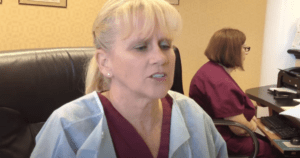
We use the new DentalVibe and he didn’t even know she had already given him the injections!
Patient Blog

Oral bacteria linked to dementia
Recent research shows a strong correlation between oral bacteria and dementia. Find out what this means and how individuals can reduce the risk of dementia.
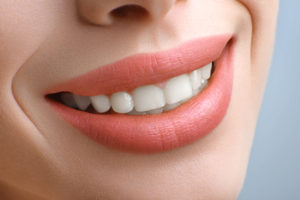
How to make your teeth whiter
Everybody wants gleaming, white teeth. Learn how to make your teeth whiter, including options for whitening your teeth at home and even overnight.

Oral cancer: Causes, symptoms, and treatment
Your complete guide to oral cancer, including the common causes, symptoms, and treatments. There are over 54,000 new cases of oral cancer every year in the US.
Dentist Blog
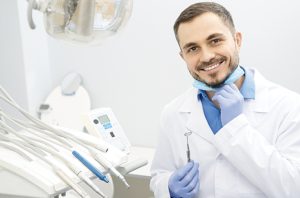
7 tips for running a successful dental practice
To run a successful dental practice, you have to stand out from the competition. Patients have never had more options for dental care, and they expect more than ever from healthcare providers. While quality care remains crucial, you also need to seek out other ways to improve the overall patient experience. This may include incorporating new technologies into…

How to ease dental phobia and needle fears
Being nervous or afraid to visit the dentist is very common – in fact, it’s so common there’s a name for it: dentophobia. This type of phobia can range from mild to severe, and can cause shortness of breath, elevated heart rate and blood pressure, and other signs of anxiety, such as shaking or a sense of impending doom.
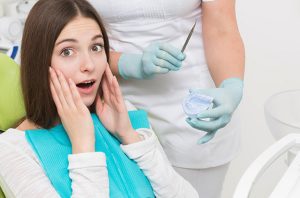
Causes of dental phobia and how to help your patients
Up to eight percent of Americans avoid seeing the dentist because of anxiety and fear. Although not all of those cases would be classified as dental phobia, a fear of the dentist is a very common issue that can lead to some very serious oral health problems. Let’s examine some of the causes of dental phobia, and what you can do to help your patients address it.
In The News

Product Talk Dental Vibe Di Tolla Lecter
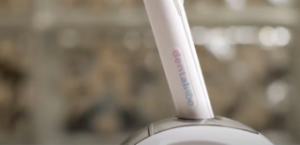
Dental Vibe Dr R Lechner
Watch this video on YouTube

CBS TV NEWS Dr. Cindy Schmidt, DDS demonstrates DentalVibe for Pain-Free Injections!

Looking for A Dentist? Find One Near You Instantly at Anxiety-Free Dentists
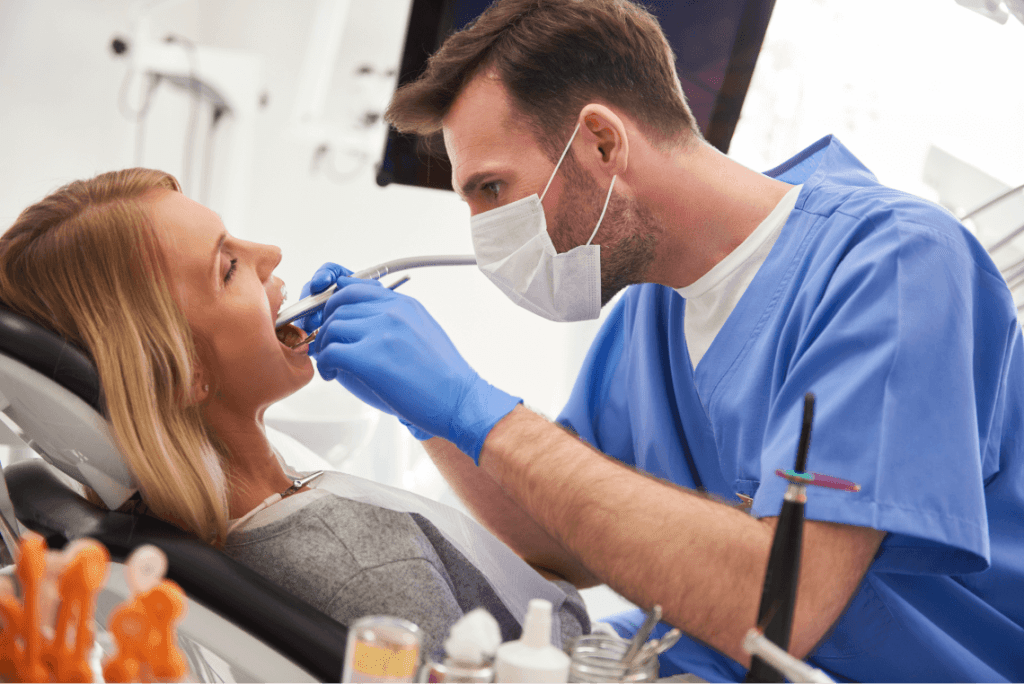
Join our newsletter and get 20% discount
Is It Safe To Visit The Dentist During Pregnancy?
- Last updated Mar 17, 2024
- Difficulty Beginner
- Category When birth doesn't go to plan

Pregnancy is a time of excitement, joy, and of course, many questions and concerns. One common question that often arises is whether it’s safe to visit the dentist during pregnancy. As with any medical procedure during this special time, there are considerations to be made. In this article, we will explore the importance of dental care during pregnancy, the safety of dental procedures, and any precautions that should be taken for the well-being of both mother and baby. So, if you're expecting and wondering about your dental health, read on to find out if it’s okay to go to the dentist during pregnancy.
What You'll Learn
Is it safe to visit the dentist during pregnancy, what dental procedures are considered safe during pregnancy, are there any risks or complications associated with dental treatment during pregnancy, can dental problems during pregnancy affect the health of the baby, are there any special precautions or guidelines that pregnant women need to follow when visiting the dentist.

When it comes to taking care of your health during pregnancy, many mothers-to-be may wonder if it is safe to visit the dentist. The answer is yes – dental care is important during pregnancy and there are precautions that can be taken to ensure the safety of both the mother and the baby.
Research has shown that pregnant women are at an increased risk of dental problems such as gum disease and tooth decay. This is due to hormonal changes that can cause the gums to become more sensitive and prone to inflammation. Additionally, cravings for sugary foods and morning sickness can further contribute to dental issues.
Regular dental check-ups and cleanings are essential for maintaining good oral health during pregnancy. However, it is important to inform your dentist about your pregnancy so that they can tailor the treatment accordingly. They may choose to avoid certain medications such as X-rays and certain antibiotics that could have potential risks to the baby.
It is also important to note that local anesthesia, used during dental procedures, is generally considered safe during pregnancy. This is because the amount of anesthesia used is minimal and most of it is localized to the area being treated. However, if you have concerns about anesthesia, it is best to discuss them with your dentist.
In some cases, dental treatment may need to be delayed until after pregnancy. For example, elective procedures such as teeth whitening or cosmetic treatments are generally postponed. However, if you are in pain or have an infection, it is important to seek dental care as soon as possible to prevent complications.
Here are some tips for visiting the dentist during pregnancy:
- Inform your dentist about your pregnancy and any medications you are taking.
- Brush and floss regularly to maintain good oral hygiene.
- Eat a healthy diet and limit sugary foods to reduce the risk of cavities.
- Take breaks during longer appointments to rest and reposition yourself if needed.
- If you experience morning sickness, rinse your mouth with water or a fluoride mouthwash to neutralize the stomach acids that can damage your teeth.
In conclusion, it is safe to visit the dentist during pregnancy with some precautions. Regular dental care is important to maintain good oral health and prevent complications. By informing your dentist about your pregnancy and following good oral hygiene practices, you can ensure the safety of both you and your baby during dental visits. Remember, a healthy smile contributes to a healthy pregnancy!
Is Imitation Crab Safe to Eat During Pregnancy?
You may want to see also
Pregnancy is a delicate time for women, and when it comes to dental procedures, expecting mothers may have concerns about the safety of certain treatments. However, there are dental procedures that are considered safe during pregnancy and can be performed to maintain good oral health. In this article, we will explore these safe dental procedures and provide a step-by-step guide to ensure a smooth experience for pregnant patients.
Maintaining good oral health during pregnancy is crucial not only for the expecting mother's overall well-being but also for the health of the developing baby. Hormonal changes during pregnancy can increase the risk of dental problems such as gum disease and tooth decay. Therefore, it is essential to continue regular dental check-ups and address any oral health issues that may arise.
The American Dental Association (ADA) states that routine dental care, including cleanings and exams, is safe during pregnancy. However, it is important to inform your dentist about your pregnancy and any medication you may be taking. This information will help your dentist tailor the treatment plan and make any necessary adjustments to ensure your safety and comfort.
Here is a step-by-step guide to safe dental procedures during pregnancy:
Step 1: Schedule a consultation with your dentist early in your pregnancy to discuss your oral health and any concerns you may have. This will allow your dentist to create a customized treatment plan that takes into account the specific needs of your pregnancy.
Step 2: Inform your dentist about your pregnancy and any changes you have noticed in your oral health. This includes any increased sensitivity, bleeding gums, or toothaches. Your dentist will conduct a thorough examination and address any issues accordingly.
Step 3: Routine dental cleanings and exams can be performed safely during pregnancy. These procedures help remove plaque and tartar buildup, reducing the risk of gum disease and tooth decay. Your dentist may recommend more frequent cleanings to ensure optimal oral health throughout your pregnancy.
Step 4: If you require dental X-rays, rest assured that modern digital X-ray technology minimizes radiation exposure and poses little to no risk to you or your baby. However, it is important to use a lead apron to protect your abdomen during the procedure.
Step 5: Simple restorative procedures such as dental fillings and dental bonding can be safely performed during pregnancy. These treatments help restore decayed or damaged teeth and prevent further oral health issues.
Step 6: In the case of a dental emergency, such as a severe toothache or a broken tooth, it is essential to seek immediate dental care. Your dentist will take necessary precautions to ensure your safety and provide the appropriate treatment. Delaying or neglecting dental emergencies can lead to complications and potential harm to both you and your baby.
It is worth noting that certain dental procedures should be postponed until after pregnancy. These include elective procedures such as teeth whitening, dental implants, and non-urgent orthodontic treatments. While these procedures are generally safe, it is best to wait until after delivery to undergo them to minimize any potential risks.
In conclusion, maintaining good oral health during pregnancy is vital, and there are safe dental procedures that can be performed to ensure optimal oral hygiene. By following a step-by-step guide and discussing your concerns with your dentist, you can receive necessary dental care while ensuring the safety of both you and your baby. Remember to inform your dentist about your pregnancy and any medication you may be taking to receive the most appropriate treatment.
Is CLA Safe to Consume During Pregnancy?
Dental care during pregnancy is essential for both the mother and the baby's health. Maintaining good oral hygiene and receiving necessary dental treatment can help prevent complications during pregnancy. However, there are certain risks and potential complications that need to be considered when undergoing dental treatment while pregnant.
One of the main concerns during dental treatment is the administration of anesthesia. Local anesthesia is commonly used during dental procedures to numb the area being treated. Most local anesthetics are considered safe for use during pregnancy, as they have a low systemic absorption rate. However, it is important to inform your dentist about your pregnancy so that they can choose the most appropriate anesthesia technique and dose for you.
Another potential risk during dental treatment is the use of dental X-rays. X-rays are an essential part of dental diagnosis and treatment planning. However, in pregnant women, X-rays should be performed only when absolutely necessary and with proper shielding. The American College of Obstetricians and Gynecologists recommends that dental X-rays should be deferred until after the first trimester, if possible, to minimize any potential risks to the developing fetus.
Additionally, certain dental procedures may involve the use of medications such as antibiotics or painkillers. It is crucial to inform your dentist about your pregnancy, as some medications may not be safe for use during pregnancy. Your dentist will be able to prescribe alternative medications that are safe for both you and your baby.
Moreover, hormonal changes during pregnancy can lead to an increased risk of certain dental conditions. Pregnancy gingivitis is a common condition characterized by gum inflammation, swelling, and bleeding. Regular dental cleaning and good oral hygiene practices can help prevent and manage pregnancy gingivitis.
Pregnant women are also at an increased risk of developing dental caries. The changes in diet and hormonal fluctuations can lead to an increased susceptibility to cavities. It is important to maintain a healthy diet, limit sugary foods and drinks, and practice good oral hygiene to prevent dental caries during pregnancy.
In conclusion, dental care during pregnancy is crucial for both the mother and the baby’s health. While there are certain risks and potential complications associated with dental treatment during pregnancy, most dental procedures can be safely performed with proper precautions. It is important to inform your dentist about your pregnancy and discuss any concerns or questions you may have. By maintaining good oral hygiene and seeking necessary dental treatment, you can ensure a healthy smile for you and your baby.
Understanding the Impact of Consuming Squid with High Mercury Levels during Pregnancy
Pregnancy is an exciting time in a woman's life, but it can also bring about a host of changes and challenges. One common issue that many pregnant women face is dental problems. From gum disease to tooth decay, these issues can be troublesome for both the mother and the baby. In this article, we will explore how dental problems during pregnancy can affect the health of the baby and provide some tips for maintaining good oral health during this special time.
Firstly, it is important to understand that dental problems during pregnancy are not uncommon. The hormonal changes that occur during pregnancy can affect the body in many ways, including the mouth. Increased levels of progesterone can lead to an overgrowth of bacteria in the mouth, which can result in gum disease. Additionally, the increased blood flow to the gums can cause them to become more sensitive and prone to bleeding. These issues can be exacerbated by poor oral hygiene habits or a pre-existing dental condition.
So, how can dental problems during pregnancy actually affect the health of the baby? Research has shown that there is a link between maternal oral health and the health and development of the baby. For example, studies have found that pregnant women with gum disease are more likely to give birth prematurely or have a low birth weight baby. This is thought to be due to the inflammatory response that occurs in the body as a result of gum disease. The body's immune system is constantly fighting off the bacteria in the gums, and this immune response can lead to inflammation in other parts of the body, including the uterus. This inflammation can increase the risk of preterm labor and adversely affect the baby's growth and development.
Furthermore, there have also been associations between maternal oral health and certain birth defects. One study found that women with poor oral health were more likely to have babies with cleft lip and palate. While the exact mechanisms behind these associations are not yet fully understood, it is believed that the bacteria in the mouth can potentially travel through the bloodstream to the developing baby and interfere with normal development.
Given the potential impact of dental problems on the health of the baby, it is crucial for pregnant women to prioritize their oral health. Here are some steps that can help maintain good oral hygiene during pregnancy:
- Brush and floss regularly: It is important to continue brushing twice a day and flossing daily to remove plaque and bacteria from the teeth and gums. Consider using a soft-bristled toothbrush to avoid irritating the gums.
- Visit the dentist: Regular dental check-ups and cleanings are essential during pregnancy. Be sure to inform your dentist about your pregnancy so they can make any necessary adjustments to your treatment plan.
- Eat a balanced diet: A healthy diet can support good oral health. Avoid foods high in sugar and opt for nutritious options like fruits, vegetables, and whole grains.
- Use mouthwash: Consider using an alcohol-free mouthwash to help kill bacteria in the mouth. However, it is important to check with your healthcare provider before introducing any new products into your routine.
- Stay hydrated: Drinking plenty of water can help wash away bacteria and keep the mouth moist, reducing the risk of tooth decay and gum disease.
In conclusion, dental problems during pregnancy can indeed affect the health of the baby. The hormonal changes and increased blood flow to the gums can lead to gum disease and other oral health issues. These problems have been linked to preterm birth, low birth weight, and even certain birth defects. It is crucial for pregnant women to prioritize their oral health by practicing good oral hygiene, visiting the dentist regularly, and maintaining a healthy diet. By taking these simple steps, you can help protect both your own oral health and the health of your baby.
The Mystery of Pregnancy: Does It Sit High or Low?
Pregnancy is a time of great change in a woman's body, and it's important to take extra precautions to ensure the health of both the mother and the developing baby. This includes paying attention to oral health and maintaining regular visits to the dentist. In fact, maintaining good oral health during pregnancy is not only important for the mother's overall well-being but also for the baby's development.
One of the main concerns for pregnant women when it comes to visiting the dentist is the potential harm that certain dental procedures or medications may pose to the developing baby. However, with proper precautions, most dental procedures can be safely performed during pregnancy.
The first step is to inform your dentist about your pregnancy as soon as possible. This will allow them to tailor your treatment plan accordingly and avoid any procedures that may pose a risk. It's also important to let your dentist know about any medications you are taking, as some medications may not be safe during pregnancy.
Most routine dental procedures, such as cleanings and x-rays, can be safely performed during pregnancy. However, it's important to ensure that the dental office is equipped with proper shielding measures to reduce the radiation exposure, and only take x-rays if absolutely necessary.
It's also important to note that hormonal changes during pregnancy can increase the risk of certain dental conditions, such as gum disease. Therefore, pregnant women should pay extra attention to their oral hygiene and brush and floss regularly to prevent any potential complications.
In some cases, pregnant women may experience dental issues such as pregnancy gingivitis or pregnancy tumors. Pregnancy gingivitis refers to the inflammation of the gums due to hormonal changes, while pregnancy tumors are benign growths that develop on the gums. These conditions can cause discomfort and bleeding, but they can usually be managed with proper oral hygiene and regular dental cleanings.
While it may be tempting to postpone dental visits during pregnancy, it's important to remember that neglected dental issues can lead to more serious complications. For example, untreated gum disease has been linked to preterm birth and low birth weight. Therefore, it is crucial for pregnant women to continue regular dental visits and seek proper treatment if needed.
In conclusion, visiting the dentist during pregnancy is important for maintaining good oral health and ensuring the overall well-being of both the mother and the baby. By following proper precautions and guidelines, most dental procedures can be safely performed, and any potential complications can be effectively managed. It's important for pregnant women to communicate with their dentist about their pregnancy and any medications they are taking, and to pay extra attention to their oral hygiene. By taking these steps, pregnant women can maintain a healthy mouth and reduce the risk of dental complications during pregnancy.
The Top Foods Rich in Folate for a Healthy Pregnancy
Frequently asked questions.
Yes, it is generally safe to go to the dentist during pregnancy. It is important to maintain good oral health during pregnancy as hormonal changes can increase the risk of gum disease and other dental problems. However, it is recommended to inform your dentist that you are pregnant so that they can adjust the treatment plan accordingly.
Dental X-rays are generally considered safe during pregnancy, especially with the use of lead apron and thyroid collar to protect the developing baby from radiation. However, it is best to avoid unnecessary X-rays during pregnancy and only have them if it is absolutely necessary for the dental procedure.
Dental anesthesia is generally considered safe during pregnancy. However, it is important to inform your dentist about your pregnancy so that they can use the appropriate anesthesia and take necessary precautions. Local anesthesia is typically used for dental procedures, which numbs the area being treated and does not pose a significant risk to the baby.

- Elena Tapia Author Editor Reviewer

- Kezia Cochran Author Reviewer Doctor
It is awesome. Thank you for your feedback!
We are sorry. Plesae let us know what went wrong?
We will update our content. Thank you for your feedback!
Leave a comment
When birth doesn't go to plan photos, related posts.

Does Withdrawing Before Ejaculation Prevent Pregnancy?
- Mar 27, 2024

Exploring the Use of Apple Cider Vinegar for Birth Control: Can Douching with ACV Prevent Pregnancy?
- Mar 22, 2024

Steps to Prevent Teenage Pregnancy Ruth
- Mar 31, 2024

The Safety of Using Cough Drops during Pregnancy
- Mar 15, 2024

Exploring the Possible Connection Between Diverticulitis and Fertility: Can Diverticulitis Impact Prospective Pregnancy?

Is Berocca Safe to Use During Pregnancy?

The Best Time To See The Dentist During Pregnancy
Pregnancy and dentist visits.
Pregnant women often wonder if it is safe to see their dentist. How will it affect their baby? Experts say it is not just safe to see the dentist but it is highly recommended to do so. Pregnant women also have issues that need to be addressed to ensure the oral health of both mother and child.
Generally, routine examinations and cleanings are recommended. Any major dental procedure or other unnecessary treatment is better postponed after the delivery. Certainly it is safest that before your pregnancy, see your dentist so that x-rays and other treatment can be planned and undertaken.
Your first 13 weeks of pregnancy, or the first trimester, is a critical period when your baby’s major organs are under development. During this time, only check-ups and routine cleaning are allowed. If possible, you should not have anesthesia, surgery or drugs. By week 14 to 20, the second trimester, elective dental treatment can be considered. This is the quietest and safest time during a woman’s pregnancy.
The third trimester, which is from the 25th week and before childbirth, is a difficult time for the mother. Her body is heavier, sitting in the dental chair can be uncomfortable for her; likewise, her baby’s placenta at this time is very susceptible to outside factors. In acute conditions like tooth pain and infection that can cause stress to mother and child, the appropriate treatment can be carried out. Otherwise, it is recommended to postpone planned operations or procedures after delivery.
During any time in a pregnancy dental treatment can be done, though there are more suitable times than others. However, in the event of a dental emergency, such as one involving an infection, you must see your dentist promptly. In cases of preventive therapy – such as cleaning, fluoride application, fissure sealants, and others, your dentist can apply modifications to keep you and your baby safe. Taking dental x-rays come with shielding, as per the ADA guidelines.
When seeing your dentist at any time while expecting, you must mention the medicines you are taking and any specific instructions of your physician. This will guide your dentist to better have the best possible care for you and your baby. Nonetheless, sticking to your oral hygiene routine and visiting your dentist at least twice during your pregnancy, significantly decreases the risk of infection.
Worry-Free Dental Health in Bellevue
While you are expecting, be sure to visit our Bellevue dentist, here at Overlake Dental, for a safer, secure, and worry-free pregnancy.
- Understanding the Effect of Pregnancy on Oral Health
- How To Keep Your Mouth Healthy While Pregnant →
Responsive and Professional! Dr. Yu is the BEST! I got my 4 wisdom teeth extracted, and Dr. Yu... more Responsive and Professional! Dr. Yu is the BEST! I got my 4 wisdom teeth extracted, and Dr. Yu was very professional, humorous, patient and careful that I didn't feel much pain. After the surgery, Dr. Yu followed up with me and gave me great suggestions on how to take care of the wounds. Kudos to Dr. Yu and her assistants at the clinic! Overall, great service! less
Great experience each visit. Dr. Yu and Livia make it easy to look forward to dentist appointments rather... more Great experience each visit. Dr. Yu and Livia make it easy to look forward to dentist appointments rather than avoid them! less
Dr. Yu, Ann and all the clinic staff are super friendly and professional! This was my third time... more Dr. Yu, Ann and all the clinic staff are super friendly and professional! This was my third time to go their clinic. I did deep cleaning and exam, they are definitely more detail than other three dental that I went to before. I took my wisdom tooth here as well. I was so scared at the beginning, but Dr. Yu’s professional skills make me relaxed and there was no pain during the process. I didn’t have swollen and pain like lots of people did. I think it’s because of Dr Yu’s good skills. I already recommended this clinic for my friends. I also highly recommend everyone who need a dentist! less
I chipped a front tooth veneer and Dr. Yu did a great job replacing it. The color and... more I chipped a front tooth veneer and Dr. Yu did a great job replacing it. The color and size matches great and everyone thinks it's a real tooth. less
Great experience. Very clean and beautiful office. Dr Yu is amazing and great at communication. Put me at... more Great experience. Very clean and beautiful office. Dr Yu is amazing and great at communication. Put me at easy, right away. The staff is very nice. Easy parking. less

135 N. Arlington Heights Rd., Suite 185, Buffalo Grove, IL 60089

Is it safe to visit the dentist during pregnancy?
Don’t allow visiting the dentist to slip from your to-do list before your baby arrives. Getting a checkup during pregnancy is safe and necessary for your dental well-being. Not only can you manage cleanings and treatments like fillings while you’re pregnant, but your dentist can also assist with any pregnancy-related oral issues you may be having.
The American Dental Association, the American Congress of Obstetricians and Gynecologists, and the American Academy of Pediatrics advise women to get dental care while pregnant. It is a crucial time in a woman’s life, and maintaining oral health is linked to general health.
Here are some of the pregnant women’s most frequent concerns about visiting the dentist.
When to Tell Your Dentist You Are Pregnant
If you believe you might be pregnant, inform your dentist’s staff. When you schedule an appointment, tell them how far along you are. Also, let your dentist know if you’re taking any medications or if your doctor has given you any specific instructions. If pregnancy is high-risk or if you have particular health concerns, your dentist and physician may advise that particular procedures be delayed.
Local Anesthetics During Pregnancy
One thing you don’t have to worry about if you’re pregnant and need a filling, root canal, or tooth extraction is whether the numbing medications your dentist may use during the treatment are safe. They are, in fact, both safe for you and your baby.
In a recent study, women received lidocaine injections, and a control group did not. These therapies were safe during pregnancy, as they had no impact on the rate of miscarriages, birth abnormalities, prematurely born babies, or infant weight. One study found no evidence to suggest that dental treatment with anesthetics is detrimental to pregnancy health, which aimed to see whether there was a significant risk linked between dental treatment with anesthesia and pregnancy outcomes and didn’t identify one.
Dental X-rays During Pregnancy
Yes, getting an X-ray during pregnancy is safe. Although dental X-rays emit little radiation, your dentist or hygienist will wrap you in a leaded apron to reduce the amount of radiation that reaches your abdomen. Your dental office will also cover your throat with a leaded collar to protect your thyroid from radiation exposure.
Dental Care While Pregnant
Don’t miss your dental checkup just because you’re expecting a baby. Now more than ever, regular visits are essential since pregnancy provokes hormonal changes that place you at risk of periodontal disease and severe gum pain, both of which may be exacerbated by pregnancy gingivitis. Gingivitis will affect 40% of all pregnant women throughout their pregnancy. Pregnancy can make it worse if you already have significant gum disease.
Pay close attention to any fluctuations in your gums during pregnancy. If you experience soreness, bleeding, or gum swelling at any time during your pregnancy, see a dentist or periodontist as soon as possible.
Flossing, twice-daily brushing, and using an antimicrobial mouth rinse are all recommended to maintain good oral hygiene to prevent and cure dental health issues such as tooth decay. If you’re expecting a baby, don’t skip regular dental cleaning because it’s inconvenient. Now more than ever, expert dental cleanings are crucial. Gum disease that doesn’t respond to treatment may need intervention by a dentist. Antibiotics and tissue excision might be used for treatments.
Creekside Dental


IMAGES
VIDEO
COMMENTS
Pregnancy increases your risk for dental issues that can affect you and the fetus if left untreated. It's critically important to continue getting oral care and needed dental work during this time.
The American Dental Association (ADA) recommends pregnant women eat a balanced diet, brush their teeth thoroughly with ADA-approved fluoride toothpaste twice a day, and floss daily. Have preventive exams and cleanings during your pregnancy. Let your dentist know you are pregnant. Postpone non-emergency dental work until the second trimester or ...
For the vast majority of women, going to the dentist for routine care is safe during pregnancy. It's an old wives' tale that going to the dentist while pregnant is risky for developing babies and moms-to-be. In fact, just the opposite is true - good dental hygiene is part of a healthy lifestyle for everyone. The mouth is a major gateway ...
Seeing the dentist during pregnancy every six months as usual is important so you can keep your mouth clean and (fingers crossed) cavity-free. Go to your regular twice-a-year appointments, and if your dentist recommends X-rays, don't worry: Dental X-rays are completely safe during pregnancy. If avoiding radiation from X-rays is on your mind ...
Pregnancy and Dental Cavities. Pregnant women may also be at risk for cavities due to changes in behaviors, such as eating habits. 3 Women who have a lot of cavity-causing bacteria during pregnancy and after delivery could transmit these bacteria from their mouth to the mouth of their baby. 4 Early contact with these bacteria and to other sugars, such as from frequent snacking or taking a ...
Yes, it's safe (and smart) to visit the dentist during pregnancy. Oral health care - including teeth cleaning, X-rays, pain medication, and local anesthesia - is safe throughout pregnancy. In fact, it's especially important to have regular dental checkups, cleanings, and any necessary treatments during pregnancy.
Oral health care, including having dental radiographs taken and being given local anesthesia, is safe at any point during pregnancy. 1, 2 Further, the American Dental Association and the American College of Obstetricians and Gynecologists (ACOG) agree that emergency treatments, such as extractions, root canals or restorations can be safely performed during pregnancy and that delaying treatment ...
Tell your dentist (and doctor) if you are pregnant. Routine dental care can be done any time during pregnancy. Any urgent procedure can be done, as well. All elective dental procedures, however ...
Dental Care is Safe and Important During Pregnancy. Print. Image. Source Text. Available for Download. Last Reviewed: March 15, 2023. Division of Oral Health National Center for Chronic Disease Prevention and Health Promotion. Infographics about oral health: dental care is safe and important during pregnancy.
Yes. The American College of Obstetricians and Gynecologists (ACOG) considers the prevention, diagnosis and treatment of oral health conditions to be safe throughout pregnancy, as it serves to prevent more serious issues like infections. It's important to let your dentist know that you're pregnant. That way they can help you maintain your ...
During your visit, let your dentist know about any medications you are taking. If your pregnancy has been classified as high-risk, your dentist or doctor might recommend that certain dental treatments be postponed. ... Yes, according to the American College of Obstetricians and Gynecologists, dental X-rays are safe during pregnancy. Dental X ...
Getting the right vitamins and nutrients is good for your baby's teeth, which begin to form before birth. And remember that it's safe—and a good idea—to visit the dentist during your pregnancy. Noticing changes in your mouth. Some changes in your mouth during pregnancy are normal and should go away after your baby is born.
Keeping Your Oral Health Intact During Pregnancy. There are several ways to ensure good oral health during pregnancy, including: Regular Teeth Cleanings, X-Rays, and Dental Exams. Teeth cleanings, x-rays, and dental exams are safe during pregnancy. You should still visit your dentist every six months to receive preventive care.
According to the American Dental Association, it is safe to get your teeth cleaned and examined, and to receive any necessary x-rays that you normally would during a routine visit. Make sure to let your dental team know you are pregnant. If you are not experiencing any dental problems, and would feel better receiving x-rays after pregnancy ...
The first trimester of your pregnancy (the first 13 weeks) is the time in which most of the baby's major organs develop. If you go to the dentist during your first trimester, tell your dentist that you're pregnant and have only a checkup and routine cleaning. If possible, postpone any major dental work until after the first trimester.
Listen to your body and do your best to work through it. Try a toothbrush with a smaller head. Switch to a new flavor of toothpaste - try them all if you have to. Do everything you can to stick to your dental health regimen. When your dental health improves, your baby's does too.
The American Dental Association (ADA) states that preventive, diagnostic, and restorative dental treatment are safe throughout pregnancy. 1 There is "ample evidence that shows oral health care during pregnancy is safe and should be recommended to improve the oral and general health of the woman." 2 However, confusion still surrounds the topic of treating patients during pregnancy for both ...
You can use interdental brushes, dental floss, tape or a water flosser - whichever you find more comfortable. Avoid sugary drinks and snacks, especially between meals. Avoid using mouthwash containing alcohol. If you smoke, give up. Smoking causes gum disease, can make existing gum disease worse, and it harms your unborn baby.
In fact, dental hygiene is crucial during pregnancy as there's a link between poor dental hygiene and preterm labor. Yes. Is it safe to visit the dentist while pregnant?
The good news is that, in most cases, it is safe to visit the dentist during pregnancy. In fact, maintaining good oral health during pregnancy is essential for the overall health of both the mother and the baby. According to the American Dental Association (ADA), pregnant women should continue to receive routine dental care, including exams ...
In conclusion, it is safe to visit the dentist during pregnancy with some precautions. Regular dental care is important to maintain good oral health and prevent complications. By informing your dentist about your pregnancy and following good oral hygiene practices, you can ensure the safety of both you and your baby during dental visits. ...
By week 14 to 20, the second trimester, elective dental treatment can be considered. This is the quietest and safest time during a woman's pregnancy. The third trimester, which is from the 25th week and before childbirth, is a difficult time for the mother. Her body is heavier, sitting in the dental chair can be uncomfortable for her ...
One study found no evidence to suggest that dental treatment with anesthetics is detrimental to pregnancy health, which aimed to see whether there was a significant risk linked between dental treatment with anesthesia and pregnancy outcomes and didn't identify one. Dental X-rays During Pregnancy. Yes, getting an X-ray during pregnancy is safe.
The lack of NHS dentist appointments is not good enough, a Conservative former minister told the Commons, as she urged the Government to sort out the situation. Dame Andrea Jenkyns said her constituents are "desperately" pleading for appointments, with one unable to see a dentist despite suffering from crumbling teeth during her pregnancy.
Sex during pregnancy: Safe or not? How pregnancy sex might cause bleeding, which positions to avoid & why doing it might even feel better while pregnant. Health 10/16/2023 October 16, 2023 11:42 min